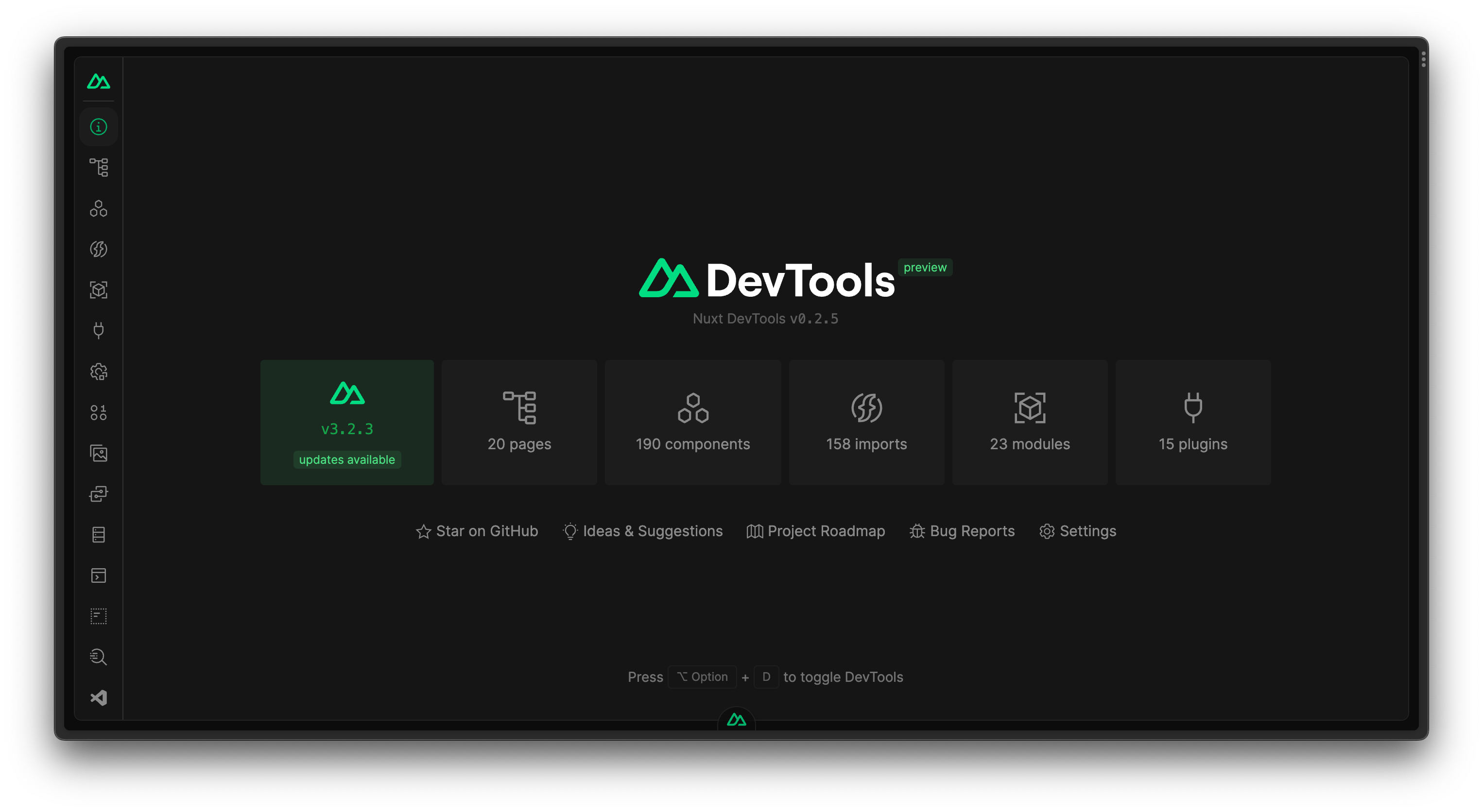Introducing Nuxt DevTools
We announced the preview of Nuxt DevTools on Vue Amsterdam 2023, a new tool to help you understand your Nuxt app and improve the developer experience even further. Today we released a new minor version v0.3.0 with a bunch of updates and improvements.

In this post, we will explore the reasons behind the creation of Nuxt DevTools, how it can enhance your development experience, and what you can expect in the future.
Developer Experience
Over the recent years, there has been an increasing focus on Developer Experience (DX). Tools and frameworks have been striving to improve the DX. Along the way, Nuxt introduced many innovative features and conventions to make your day-to-day development easier and more efficient.
In Nuxt 3, we switched to Vite as the default bundler for the instant hot module replacement (HMR) during developement, creating a faster feedback loop to your workflow. Additionally, we have introduced Nitro, a new server engine that allows you to deploy your Nuxt app to any hosting service, such as Vercel, Netlify, Cloudflare and more with zero-config.
Nuxt offers many common practices built-in:
Write TypeScript and ESM out-of-the-box throughout your codebase.
Build single-page applications (SPA), server-side rendering (SSR), static site generation (SSG), or hybrid them per routes - using the same codebase isomorphically without any explicit setup.
Use several composables, like useState and useAsyncData for sharing states accessible across the server and client sides.
Leverage SEO utilities, like useHead and useSeoMeta to make meta-tags management a breaze.Moreover, features such as the layout system, plugins, route middleware, and other tools make app creation easier and codebases more organized.
Conventions like file-based routing and file-based server APIs making the routing intuitive and effortless.
Components auto-imports makes it easy to create shared components that are directly available in any Vue file. Unlike global components, they are code-splitted. We also introduced composables auto-import, where all APIs from Vue are directly available. Nuxt modules can also provide their custom composables to be auto-imported, as well as your local composables.
Recently, we introduced client and server-only components, which can be used by adding .client and .server to the filename. All these conventions are fully typed and developers can even have type autocomplete when doing route navigation or fetching data from APIs. These conventions significantly reduce boilerplate code, avoid duplications, and improve productivity.
When it comes to ecosystem, Nuxt has a large community of developers building modules around it, with hundreds of high-quality modules available. Modules allow developers to get integrations for features they want without worrying about configuration or best practices.
Continue reading to gain more insight on this awesome tool here



